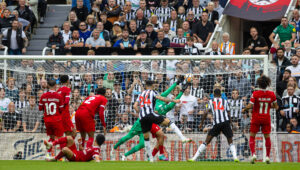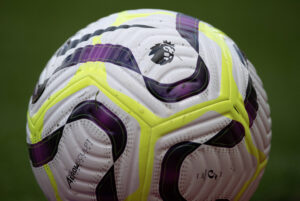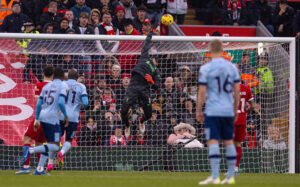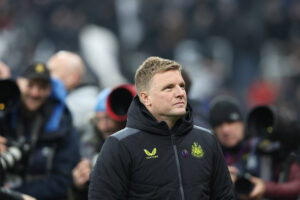As the last eight teams in this season’s Champions League prepare to do battle, one of the quarter-final ties sees Borussia Dortmund face Monaco. The Bundesliga side won the trophy twenty years ago, shocking the holders Juventus by beating them 3-1 in Munich. It was a classic tale of the underdog prevailing, but the Germans also had a side full of top class internationals. Here is exactly what became of the 1996-97 Borussia Dortmund side that won the Champions League.
Background
Ottmar Hitzfeld had taken the manager’s job in 1991, and within one season took a club that had finished tenth to runners-up in the league. In doing so, Hitzfeld not only secured a UEFA Cup place but took them to the final against Juventus. Although the Italians won 6-1 over the two legs of the final, it showed a remarkable job. He began recruiting German internationals who had been playing in Serie A, such as Matthias Sammer, Andreas Möller and Karl-Heinz Reidle.
Dortmund began a brief period of dominance in Germany. They won the Bundesliga in two successive seasons, 1994-95 and 1995-96, but nobody took them serious as Champions League contenders. Very few could see past Juventus, who had an incredible side. Dortmund qualified from their own group which included Atlético Madrid, Widzew Łódź and Steaua București. Just like this season, they were paired with French opposition, Auxerre, in the quarter-final. A 4-1 aggregate victory set up a mouth-watering semi-final tie against Manchester United.
It was a strange tie, which Dortmund won 2-0 on aggregate thanks to a deflected goal in each leg. United didn’t have much luck in front of goal, wasting several chances, and being denied by the woodwork on more than one occasion. This was to be Dortmund’s year, however, and even though the Germans had beaten Juventus in the group stages the previous season, not many people gave them a chance of lifting the trophy.
The Final
The match took place in Munich’s Olympiastadion, home of Dortmund’s rivals Bayern. Juventus were overwhelming favourites to retain their trophy, and were unbeaten in the Champions League that season. The Italians began the game as expected, completely dominating the early exchanges and pinning Dortmund in their own penalty area. Star striker Alessandro Del Piero was deemed only fit enough for the bench, and despite peppering shots at Stefan Klos, they clearly missed their number 10.
After half an hour, Dortmund took the lead when Paul Lambert’s cross found Karl-Heinze Reidle unmarked in the area. The striker chested the ball down a slammed it past Angelo Peruzzi from close range. Five minutes later, Reidle had doubled his side’s advantage, with a towering header from a corner. Juventus immediately tried to strike back, with Zidane beating Klos in the Dortmund goal, but not the post. Christian Vieri had a goal disallowed for handball shortly after.
Juventus manager Marcello Lippi knew changes were needed, and he brought on Del Piero at half time. The Italians began the second half in similar fashion to the way they started the first. They had the lion’s share of possession, lots of chances but no goals to show for their efforts. In the 65th minute they got their goal, when Alen Bokšić hit a low cross inside the box which was back heeled into the net by Del Piero. Now it was game on, and it looked as though Dortmund might crumble under the pressure applied by Juventus.
Hitzfeld decided a substitution of his own was needed, and introduced local boy Lars Ricken, who had come through Dortmund’s academy. Within a minute of entering the field of play, he scored the goal that settled the tie. Arriving on the end of a lovely counter-attack, Ricken’s first touch of the ball was to lob the ball over a static Peruzzi to make it 3-1.
Juventus, exhausted by their efforts which had been ultimately in vain, had no more answers. Borussia Dortmund saw out the game to seal their first, and so far only, Champions League title. It is the fair to say that some of the players they had would have graced any side in the world.
Stefan Klos
In spite of his successes with Dortmund, Klos never made an international appearance for Germany. He was unfortunate that Oliver Kahn, one of the greatest goalkeepers of his generation, was just two years older than him. He moved to Rangers in 1998, where he spent the rest of his career. After winning 4 Scottish Premier League titles, he retired in 2007.
Matthias Sammer
The captain played as sweeper in Hitzfeld’s 5-3-2 system, and was one of the outstanding players of his generation. He won the 1996 Ballon d’Or following Germany’s Euro ’96 victory, but his career was cut short by injury. Following Dortmund’s Champion’s League triumph, he made just six further appearances for the club, retiring in 1998 at the age of just 31.
In 2000, Sammer was appointed Dortmund manager, and led them to the Bundesliga title in 2002. He was sacked two years later following a sixth-place finish. Sammer has since managed at VFB Stuttgart, and held sporting director positions with the German national team and Bayern Munich. He left the latter in 2016 due to ill health.
Jürgen Kohler
Having won the UEFA Cup while at Juventus, ironically at the expense of Dortmund, he moved to the club in 1995. He stayed at the Westfalenstadion for the rest of his career, retiring in 2002 having helped the club to a first league title in six years. His final appearance for the club was in the UEFA Cup Final, which Dortmund lost to Feyenoord. Unfortunately for Kohler, he didn’t see out whole match, being sent off for a foul on Jon Dahl Tomasson. The resulting penalty gave the Dutch side the lead, helping them on the way to victory. A World Cup and European Championship winner with Germany, in 1990 and 1996 respectively.
Martin Kree
Kohler’s centre-back partner was one of the unsung heroes of the Dortmund side. Despite a long career in the Bundesliga, he was never rewarded with an international appearance. He retired a year after the final, at the age of 33.
Stefan Reuter
Another player to win both the World Cup and Euro ’96 with Germany. The right-back spent twelve years at Dortmund, following spells at Bayern Munich and Juventus. He won three Bundesliga titles in addition to the Champions League. He retired in 2004 at the age of 37.
Jörg Heinrich
The left-back joined Fiorentina in 1998, but returned to Dortmund after two seasons in Italy. He spent a further three years at Westfalenstadion, joining 1. FC Köln in 2003. He wound down his career in the lower divisions of German football, retiring in 2007.
Paul Lambert
A surprise signing by Dortmund in 1996, following the expiration of his contract with Motherwell. Hitzfeld converted him into a defensive midfielder, and his man-marking job on Zinedine Zidane in the final saw many neutrals suggest he was man of the match. He didn’t stay long in Germany, joining Celtic in 1997, where he played the majority of his career. He retired in 2006, following a season at Livingston, to pursue a career in management. Following spells in charge at Norwich City, Aston Villa and Blackburn Rovers, he is currently the manager of Wolverhampton Wanderers.
Paulo Sousa
The classy Portuguese midfielder joined Dortmund in 1996, having just won the Champions League with Juventus. He won the trophy again with Dortmund at his old club’s expense, but the latter part of his career was plagued with injuries. Sousa retired in 2002 following spells at Inter Milan, Parma, Panathinaikos and Espanyol. He is currently the manager of Fiorentina, having previously been in charge of Q.P.R, Swansea City and Leicester City, among others.
Andreas Möller
Another former Juventus player who came back to haunt his old side, and the main playmaker for both club and country. On his day he was simply devastating, and showed the Turin club exactly what they were missing in the final by assisting two of Dortmund’s goals. He moved to Schalke in 2000, retiring four years later after a season with Eintracht Frankfurt. He is currently the assistant manager of Hungary, working with one time team-mate Bernd Storck.
Karl-Heinz Reidle
The two-goal hero of the final, and previously a World Cup winner with Germany. Following Dortmund’s triumph, Reidle moved to Liverpool. He never fully settled at Anfield, and was unlucky to join when Michael Owen was starting to make a name for himself. Frustrated at being used as a back-up striker, he joined Fulham in 1999 and even had a brief spell as their player-manager. He retired in 2001.
Stéphane Chapuisat
The Swiss international striker was a prolific goalscorer during an eight year spell at Dortmund, in which he scored more than 100 goals. He left Germany in 1999, returning home to play for Grasshoppers Zürich. He retired in 2006, following spells at Young Boys and Lausanne.
Wolfgang de Beer
The back-up goalkeeper had already been at Dortmund for 11 years when they lifted the trophy. He made almost 200 league appearances for the club, and retired in 2001.
René Tretschok
An unused substitute during the final itself, despite scoring in the semi-final against Manchester United. A bit-part midfielder for much of his five years at the club, he left following the Champions League triumph, joining 1. FC Köln. He later played for Hertha BSC, before spending the altter years of his career in the lower divisions. He retired in 2009.
Michael Zorc
A club legend having played for Dortmund from 1981 right up until his retirement in 1998. The midfielder played just a couple of minutes in the final itself, but was a key player for much of his time at Westfalenstadion.
Heiko Herrlich
The striker joined Dortmund in 1995 from Borussia Mönchengladbach, having been a prolific marksman. He was diagnosed with a brain tumour in 2000, but returned to the team a year later having beaten the illness. He stayed at Dortmund until retiring in 2004.
Lars Ricken
Dortmund born and raised, and a supporter of the club since childhood, he achieved every fans dream by scoring the goal that clinched the European Cup for his side. He stayed at Dortmund for the entirety of his career, winning three league titles as well as the Champions League that he played such an important part in winning. His later career was hampered by injuries, and he retired in 2009 at the age of 32.
Aftermath
As shown above, the side did not stay together for very long following their greatest triumph. A succession of transfers and injuries to key players meant that it would be several years before Dortmund reached anywhere like the heights of 1997.
They won the Intercontinental Cup to confirm them as world champions, beating Brazilian side Cruzeiro 2-0 in Tokyo. This win was overseen by Italian coach Nevio Scala, as Ottmar Hitzfeld had moved upstairs to the position of sporting director. He later became manager of Bayern Munich, managing them to five Bundesliga titles overs two spells. He also took them to two Champions League finals, losing in 1999 and winning in 2001.
Dortmund later won the Bundesliga, under the management of their former captain Matthias Sammer, in 2002. Following that title win, the club found themselves on the verge of bankruptcy in 2005, which took several years to put right.
The 1996-97 Borussia Dortmund side
Much like the 1996-97 Borussia Dortmund team, nobody expects them to win this seasons Champions League. Depending on which bookmakers you frequent, most have them as sixth or seventh favourites to lift the trophy. If they can get past Monaco, however, they are only one tie away from the Final.
Wherever their Champions League journey ends this season, there is no doubt that their victory in 1997 was one of the biggest upsets in the competitions history. Juventus had looked so impressive throughout the season that they were starting to look unbeatable. The 1996-97 Borussia Dortmund side shocked the Italians, and the whole world, by taking their crown.
Main Photo






